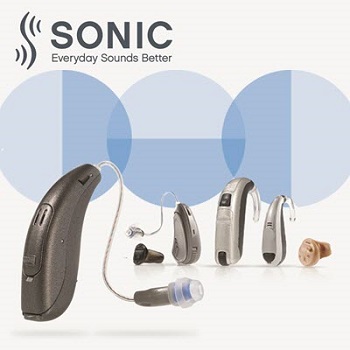Need to Know About Hearing Aids

If you are suffering from hearing
loss problem then you need to know about best hearing aids that are suitable
for you to recovery your hearing loss problem. Hearing aids are electrical
devices that assist perception of speech or other sounds, and they are used for
mild to moderate to severe hearing loss by millions of people worldwide.
Hearing aids vary in price according to selected style, electronic features.
You should be careful to remember
that no matter how impressive a particular hearing aid manufacturer's device
may sound when you are told about it by the salesman, no hearing aids can yet
restore normal hearing; but they do offer a substantial benefit to most persons
with hearing loss.
Hearing aids are generally not
covered by Medicare or commercial insurance and pricing varies according to the
manufacturer, vendor, and service arrangements, so you will have to fund the
purchase cost yourself.
Before you part with your money
you should also bear in mind that even the best hearing devices will seldom
last for more than 5 years before they will need replacement. This will
therefore not be a one-off purchase cost.
Hearing aids are not a
perfect solution either and they do have their limitations. The first hearing
aids were all 'analogue devices' and based upon a direct amplifier similar to
that in a hi-fi. However, it was soon recognized that most people with hearing
difficulties can hear some notes but not others, and if the hearing aid was
able to amplify the particular range of notes an individual person was unable
to hear, by applying a selective filter, the resulting hearing improvement was
much better than just amplifying every note equally.
The device which does this very
well is called a digital hearing aid, and it is based upon computer technology
which converts the sound to data, before filtering the sounds to amplify only
those that the owner needs help to hear. The advent of digital technology has
allowed this to be achieved in very small devices which can be programmed to
only replace those parts of the sound spectrum that the purchaser needs to have
amplified.

Now that these Digital hearing aids
have become common, the buyer of a hearing aid needs to know that hearing aids
are distinguished by their technology or circuitry. You will therefore probably
be asked whether you want an analogue hearing aid, or a 'digital' version.
Both digital and analogue hearing
aids look much the same, and usually consist of a battery-powered
transistorized microphone/amplifier unit and an earpiece. Hearing aids vary in
cost by size and by the type and sophistication of the electronic circuits used
to improve your hearing. Digital hearing aid models cost more than analogue
aids.
However, the additional cost is
worth spending, if you can afford it, as digital hearing aids are said to offer
the user a more accurate reproduction of sound, resulting in superior sound
quality. This is because digital hearing aids take the continuous sound wave
and break it up into very small, discrete bits of information. But, do be aware
that many analogue hearing aids are advertised as digital or 'digital
programmable' simply because they are programmed using a computer, but may not
be as good as true digital aids.
This is due to the fact that
acoustic programming is not nearly generally as flexible as
programmable-and-digital hearing aids. There is ample qualitative and
quantitative evidence that digital instruments outperform analog hearing aids.
In fact, the circuitry and programming applied to the best fully digital
hearing aids represents the state-of-the-art technology available today.
Comments
Post a Comment